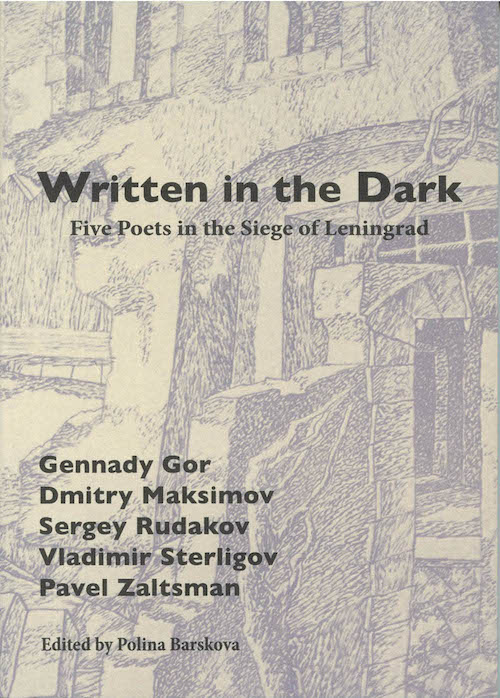Written in the Dark: Five Poets in the Siege of Leningrad Reviewed at LARB

At Los Angeles Review of Books, Piotr Florczyk wonders after the possible poetry being written in the ongoing siege of Aleppo.
Poetry is the last tangible form of hope to die, or so I believe. Surely the Syrian people, who’ve been shelled indiscriminately by all parties in the conflict, have better things to do — like finding shelter and food, and, yes, burying their dead. Still, I wait for the poetry to emerge (if it hasn’t already). Will these poems be concise and devastating accounts of being caught in the crossfire, describing the most quotidian of activities in razor-sharp detail? Or will they take the form of eulogies, formally and rhetorically elaborate paeans to the city and its residents, the war and its participants, both combatants and civilians?
But Florczyk's main point of inquiry is a different siege, and an anthology composed of poems written over 70 years ago, Written in the Dark: Five Poets in the Siege of Leningrad, edited by Polina Barskova (Ugly Duckling Presse, 2016).
The full scope and meaning of the Siege of Leningrad (1941–1944) — which Gennady Gor, Dmitry Maksimov, Sergey Rudakov, Vladimir Sterligov, and Pavel Zaltsman capture in their poems — remained hidden long after the ceasefire was reached. Since their poems did not fit the narrative espoused by the Soviet authorities, according to which the city was “a Soviet Troy, defended by impeccably heroic inhabitants wholly dedicated to the manufacture of weapons and tanks for the war effort,” most of these poems surfaced only in the late 1980s, after Mikhail Gorbachev’s reforms of perestroika and glasnost liberated Soviet culture. Anybody who hasn’t read these “censored” poems can still imagine how their depictions of the Siege differ from the official account. In the latter, we encounter the heroic Soviet everyman, who overcomes any and all hardships, or, if he doesn’t, is happy to give his life for the Motherland; in the poems, we see the work of men “whose main creative urge had not been to inspire a superhuman effort to ‘prevail,’ but to represent the extent of the pain inflicted by the disaster.” Needless to say, these five poets had no less desire to survive than those whom the Soviet propagandists chose to glorify in their monuments, but they wished to capture their experience in all its complexity. To do so, they found a language that couldn’t be easily coopted or corrupted by the authorities.
Florczyk sweeps through the anthology and looks closely at each of the five poets. Take it all in at LARB.


